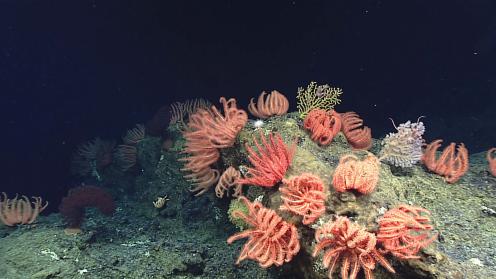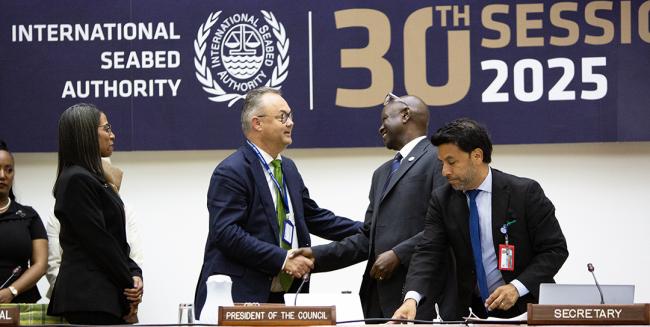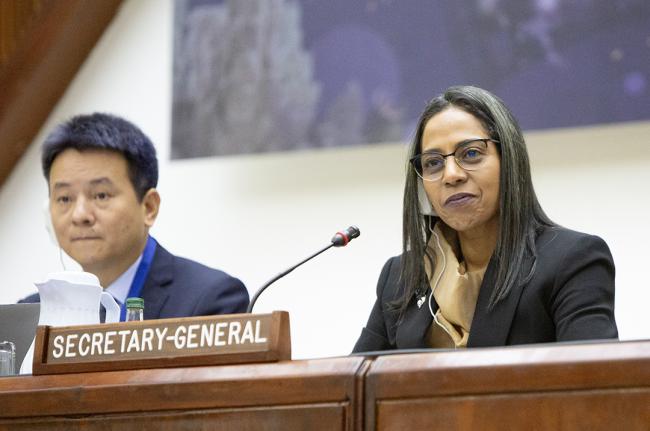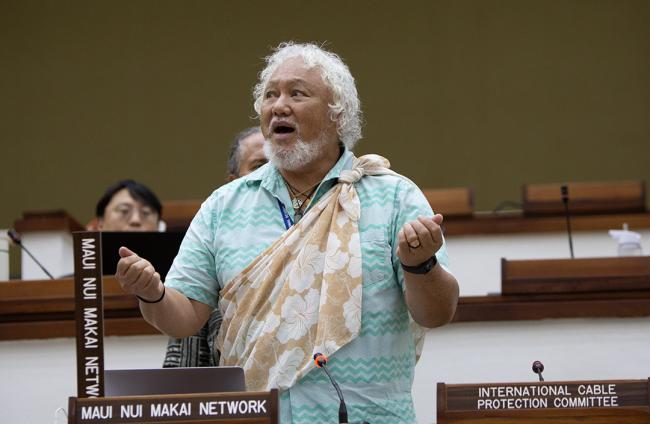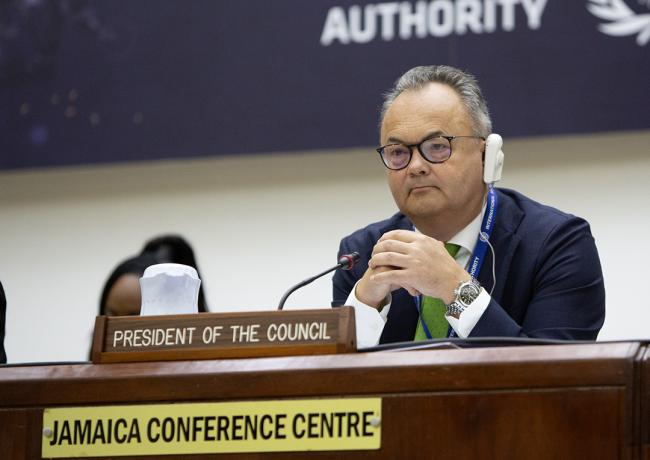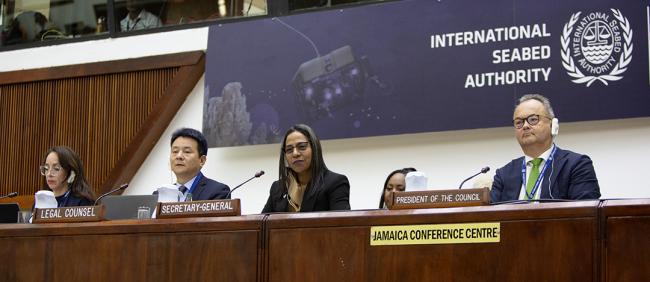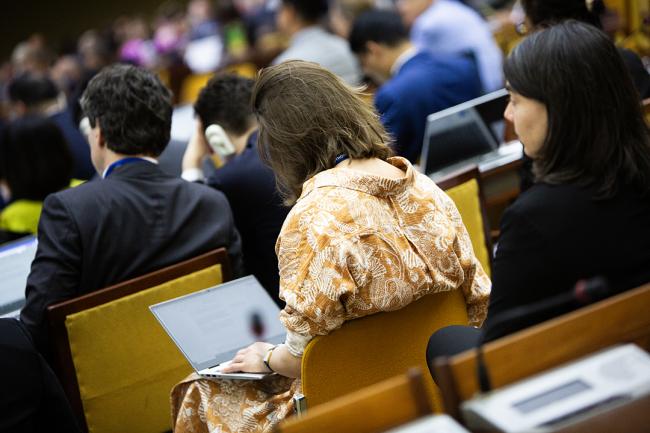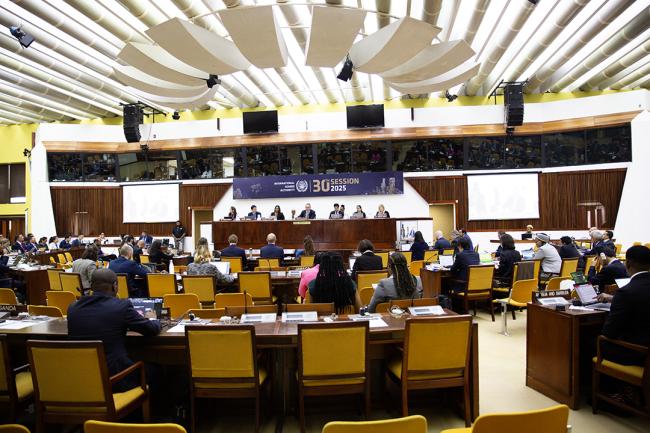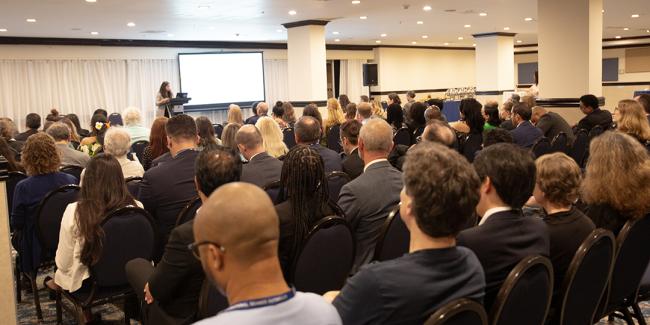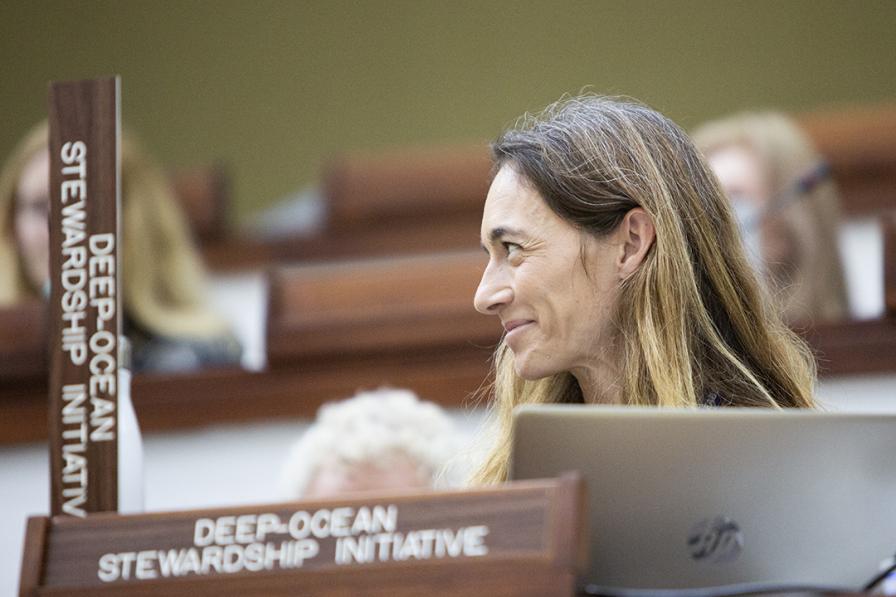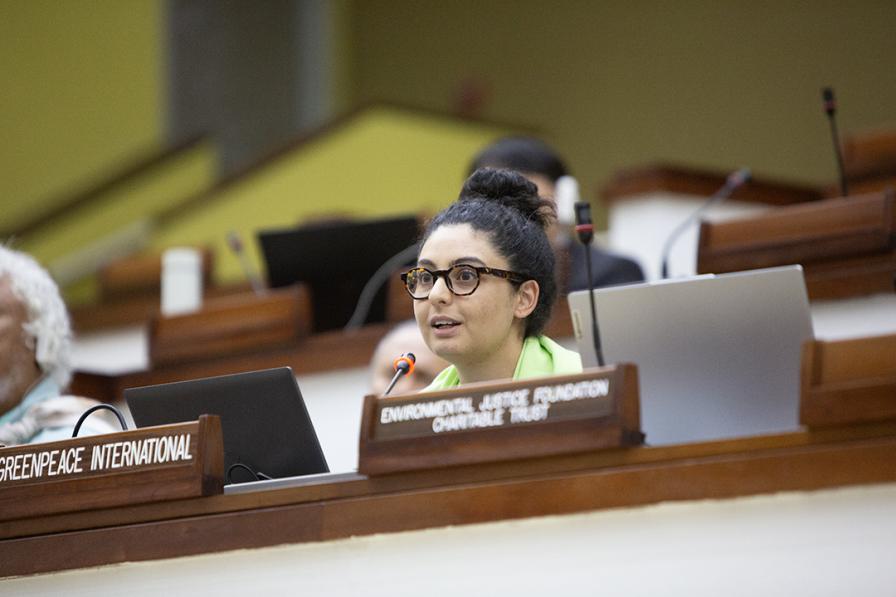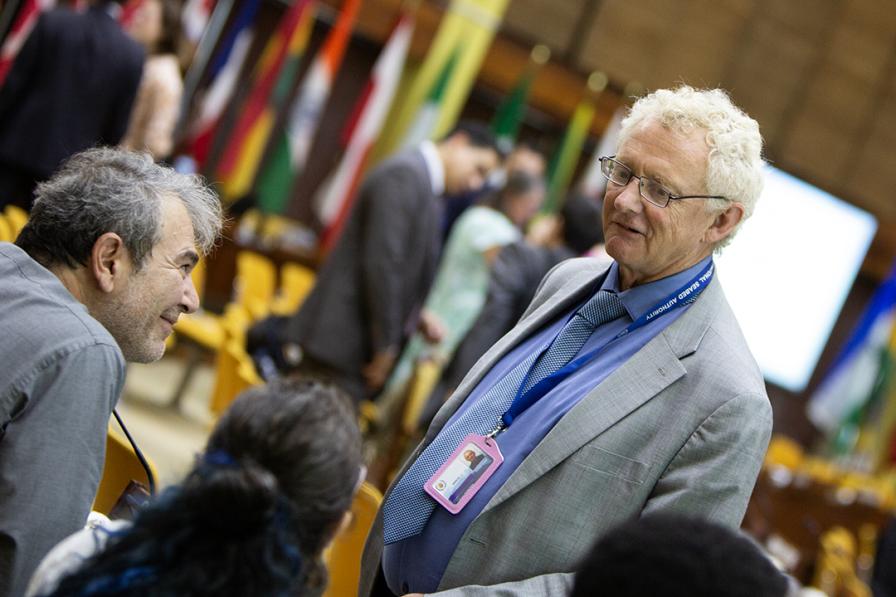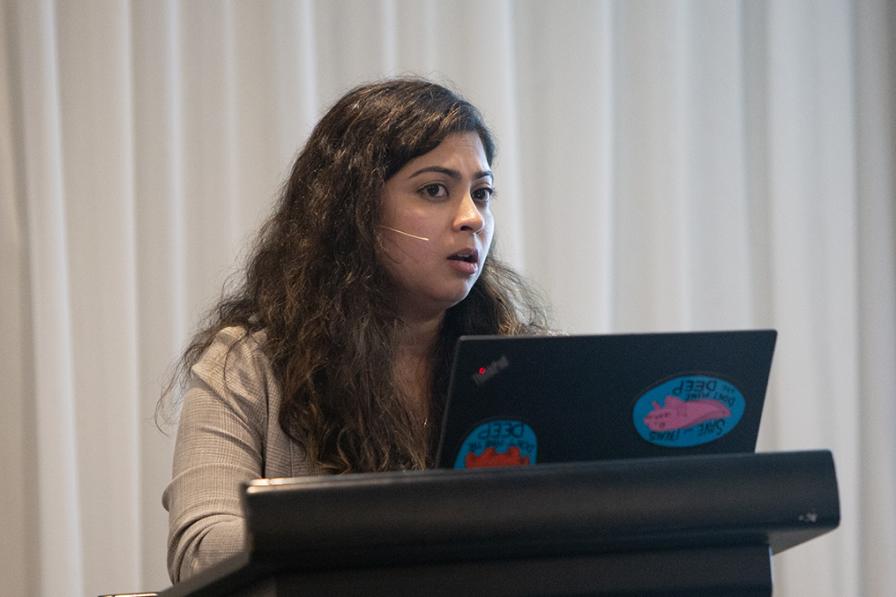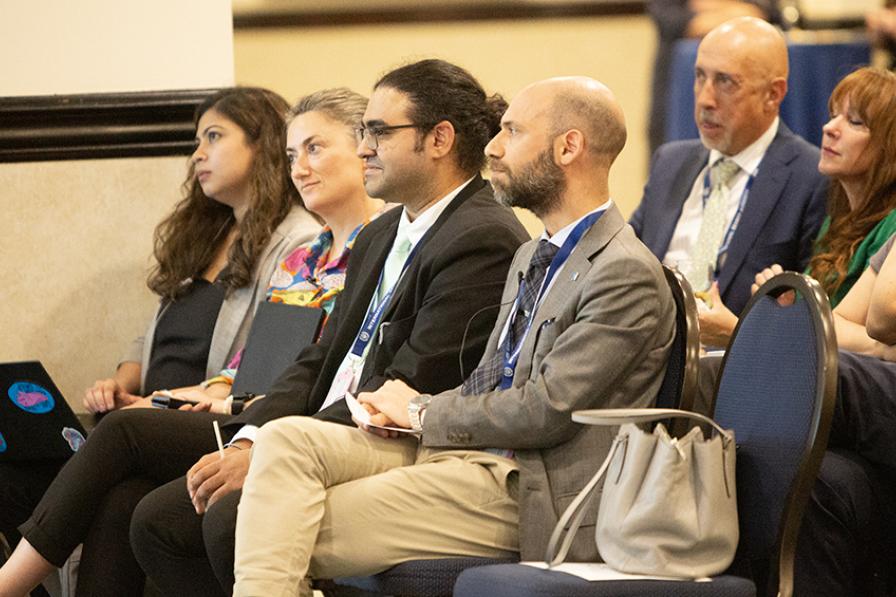“This is a special session for the International Seabed Authority (ISA),” noted outgoing Council President Olav Myklebust (Norway) as he opened the first part of Council deliberations for the 30th annual ISA session. He highlighted this first session under Secretary-General Leticia Carvalho’s leadership also marks three decades of work by the ISA.
ISA’s work has recently come into the spotlight as ISA members express divergent opinions on deep-sea mining. Some favor expediting the development of the draft regulations for commercial exploitation of deep-sea mineral resources. An increasing number of other members, however, support a mining moratorium or precautionary pause to prevent taking decisions with potentially irreversible impacts on the marine environment.
ISA Secretary-General Carvalho stressed the need to ensure both continuity and adaptability in the ISA’s work in the face of evolving challenges. She underscored that, by the end of the 30th annual ISA session, the Council should make significant progress on the draft exploitation regulations and define the next steps, including the possible adoption of a revised roadmap.
In their opening statements, delegates and observers warmly welcomed Secretary-General Carvalho. They highlighted, among other things:
- the need for a realistic timeframe for developing a regulatory framework for commercial exploitation of deep-sea mineral resources in order to strike the delicate balance between implementing the exploitation regulations on the one hand, and protecting the environment and ensuring equitable benefit-sharing, on the other;
- concerns over outstanding issues such as the potential socioeconomic impacts on land-based mining countries, clear environmental thresholds, robust compliance and enforcement mechanisms, independent oversight and monitoring, adoption of anticorruption and transparency measures, and the financial model for benefit-sharing; and
- the need to strengthen marine scientific research.
Delegates decided to proceed on the basis of the provisional agenda, postponing its formal adoption to Wednesday, 19 March. This will allow for informal discussions on two options for a suggested agenda item: the first, proposed by Nauru, on the “consideration and adoption of a process for the ISA’s consideration and approval of applications for plans of work for exploitation in the absence of adopted regulations on exploitation of mineral resources in the Area”; and the second, proposed by Chile as an alternative to Nauru’s proposal, on “further consideration of actions that the Council may take if an application were to be submitted before the Council has completed the rules, regulations and procedures relating to exploitation.”
In the afternoon, delegates elected by acclamation Duncan Muhumuza Laki (Uganda) as Council President for ISA’s 30th session.
In his opening remarks, President Laki emphasized that the roadmap adopted by the Council provides a structured framework for future work. Noting “the world is watching our work,” he urged delegates to move forward with purpose, a spirit of consensus building, and a shared vision for the common heritage of humankind.
President Laki then turned to the revised consolidated text of the draft regulations on exploitation of mineral resources in the Area. Delegates exchanged general views, including on the preamble, focusing on the need to:
- ensure the effective protection of the marine environment, with no objection to referring to prevention of “harmful effects” rather than “serious harm,” in accordance with the UN Convention on the Law of the Sea (UNCLOS);
- clarify the regulations’ scope, with some suggesting explicitly stating the type of mineral resources to which they apply; and
- address preambular text acknowledging scientific uncertainties and the need to revise the regulations in light of advancements in scientific knowledge, with Eden Charles, Interim Director-General of the Enterprise, offering specific language and some delegates stressing that the regulations themselves include a provision for their review rendering the preambular reference redundant.
The Federated States of Micronesia, as facilitator of the intersessional working group on underwater cultural heritage, emphasized that the group had submitted draft textual proposals, including new paragraphs for the preamble, which were not included in the revised draft consolidated text.
Discussions continued on regulation 1 (use of terms and scope), with delegates addressing, among other things, references to regional environmental management plans (REMPs) and to other rules of international law not incompatible with the Convention.
In the evening, a side event titled “Taking stock on the draft Mining Code,” organized by Ireland with the support of Oceano Azul Foundation and The Pew Charitable Trusts, focused on, among other things, outstanding issues to be resolved in the draft exploitation regulations.
Secretary-General Carvalho stressed the need for global cooperation on deep-sea science, highlighting Ireland as a champion of marine scientific research.
Among other topics, Ellycua Harrould-Kolieb, University of Melbourne, focused on habitat removal and intergenerational equity, noting the lack of overarching environmental obligations. Anindita Chakraborty, Pew Charitable Trusts, addressed divergent views on inspection, compliance, and enforcement, the payment regime, and liability. Pradeeph Singh, Oceano Azul Foundation, focused on the mechanism for the equitable sharing of benefits, compensation for land-based mining in developing countries, and the operationalization of the Enterprise.
To receive free coverage of global environmental events delivered to your inbox, subscribe to the ENB Update newsletter.
All ENB photos are free to use with attribution. For the 1st Part of the 30th Annual Session of the International Seabed Authority, please use: Photo by IISD/ENB | Angeles Estrada Vigil
